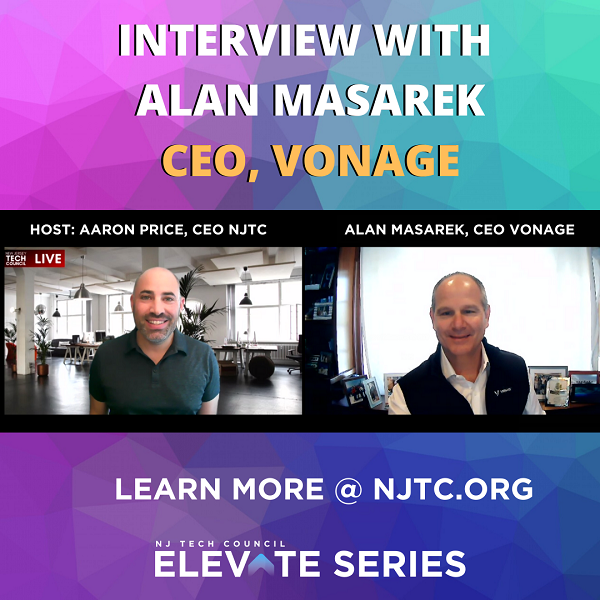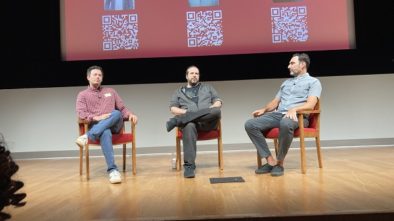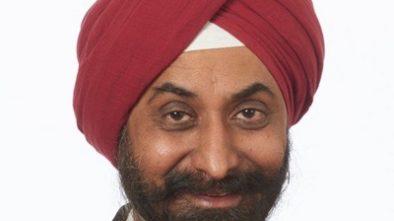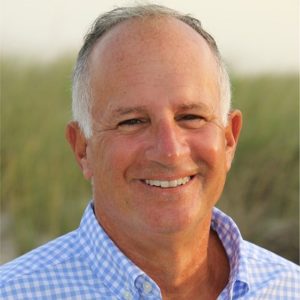Entrepreneurship is in the Genes, Vonage CEO Alan Masarek Tells NJTC Webinar Participants
Alan Masarek was just eight years old when he started selling penny candy at three pieces for a nickel, from the family’s station wagon.
The CEO of Vonage (Holmdel) said that he was just being an entrepreneur.
“You either have in your genes or you don’t,” he told New Jersey Tech Council president/CEO Aaron Price during an ELEVATE Leadership Series webinar on entrepreneurship and how the pandemic is affecting business. The video can be found here.
“Entrepreneurship is about ambiguity, and the opportunity to do something that is brand new and hasn’t been done before,” Masarek said, adding that entrepreneurs “embrace the unknown and ambiguity.
“The challenge in entrepreneurialism is if you do everything right, most likely you will fail. There are a lot of things that will trip you up,” he said.
“Culturally, there is a lot of celebrity around entrepreneurship,” Price said. “For every one of those success stories, there are literally thousands of entrepreneurs who weren’t successful. Those stories need to be told as well.”
Masarek agreed. “Don’t be swayed by the celebrity, because the field is littered with failures for every Mark Zuckerberg and for every Jeff Bezos.”
And for every Alan Masarek.
Masarek joined Vonage as CEO in November 2014, transforming the company from a residential home phone provider to a global business cloud communications leader.
Prior to that move, he had worked at Google, where he was the director of Chrome and apps after he had sold his prior company, Quickoffice (Westport, Conn.), to Google in 2012.
During his tenure at Quickoffice, that company became the world’s most widely embedded mobile productivity software, with a top-grossing iPad app and a top-10 grossing app in the Google Play Store, engaging more than 26 million registered users at the time of Google’s purchase, according to Masarek.
Cloud and Cloud-Based Communications Systems
“Right now, we are living through this move to the cloud and cloud-based communication systems. Never are they more important than they are now. With Covid-19, everyone must have the ability to work productively while out of the office, and cloud-based communications are built specifically to enable this. Legacy systems weren’t built to enable virtualized environments,” he said.
“You have to have these cloud-based solutions, so you are equally as productive remotely as you are in office,” Masarek said. He noted that there’s continual growth in telemedicine, so you can see the doctor without being physically at the doctor’s office; in distance learning, so you can see your teacher without physically sitting in a classroom; and in remote fitness training, so you can train with a coach without being physically at the gym. This is what today’s Vonage enables, he said.
Masarek told the audience that he is never going to start another company. “‘No’ is a very unpopular notion from a three-time entrepreneur. My track record is two for three. The first one went very well. The second one, I gave back all my winnings. And the third one, I sold to Google after a 10-year hold. That was a very successful outcome,” he said.
“When I look back, what I have enjoyed most is the scaling of the companies,” he said. “When you take it from zero revenue to $10 million, that’s a very different proposition than taking it from $10 million to $1 billion. I found that my own skill set actually is better when there is something tangible to play with.”
The Quickoffice Story
“Back in 2002, when I started Quickoffice, mobile was the big thing and Quickoffice was a mobile version of Microsoft Office systems. So, think Microsoft Word, PowerPoint and Excel in a mobile environment. It did not exist other than in the Windows operating systems.
“Obviously, Word, PowerPoint, Excel are properties of Microsoft. Microsoft focused everything on their operating systems, their Windows environment. But as mobile started taking off, there was not a version of Word, PowerPoint and Excel that existed in the non-Windows operating system environments.
“And think about the very early days of mobile email, going all the way back to your Palm PDAs [personal digital assistants], or Nokia Symbian devices and your Blackberry, before there was Apple iOS or Google Android. The attachment that you saw, overwhelmingly more than anything else in those emails you were receiving Word, PowerPoint and Excel documents. So, the opportunity came up to develop a mobile version of those programs that would operate in the non-Window environments. That’s what Quickoffice was all about,” he said.
“We started it in the Palm PDA space — there was a point in time that the Palm PDA had 80 percent of the market, before smartphones ever existed,” he said.
“We built a version of Microsoft Office so that, in the mobile environment, on a Palm device or a Nokia Symbian phone, the email you got might have a word attachment to it. We could open it in that mobile device and render it faithfully, so that it looked the way it would have looked on your PC,” he said.
“And we had editing functionality — not the full editing functionality that you do from desktop Office — but basically the editing functionality that was appropriate for a mobile environment. As mobile productivity took off, we took off with it,” he said.
“The early days were tough because you had narrow-band wireless networks. So, back then, in the early 2000s, if you wanted to download a 3-megabyte PowerPoint, you might have to put your phone down and wait 10 minutes. It took a long time. Today, if you want to pull a 1-gig video, it comes down in seconds in these broadband environments,” he said.
“Over time, the smartphone world got bigger and bigger, and the device capabilities and screen fidelity and screen-size keyboards, either real keyboards or virtual, got better and better. All the bandwidth got greater and greater, so more documents could be flying around, bigger PowerPoints, and things like that,” he said.
“When the iPad came along, we took off like a rocket ship. What happened was, suddenly, all you needed was a remote storage account like a Dropbox account plus Quickoffice, and your iPad practically became your PC. It enabled mobilized work,” he said.
“Today, the Quickoffice name is gone, but it’s built into Docs, Sheets and Slides. It’s built into Android and it’s built into Chrome. It was a very successful deal for all the parties involved.”
There are keys to being a successful startup, he said, but sometimes it comes down to timing and good luck.
“It’s tough to hear someone say you’re never going to make money on your idea. Our most precious resource we have in this career is our time,” he said.
“Capital is like oxygen. If you don’t have capital, you are done. You have to be honest with yourself as an entrepreneur. You have to be pragmatic, while being resolute.”




